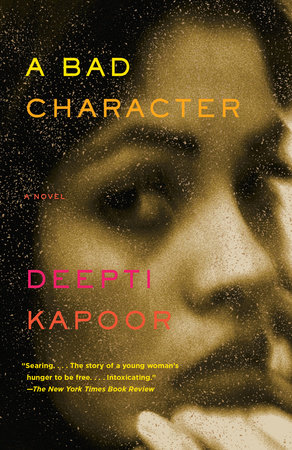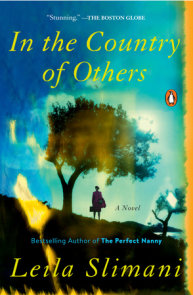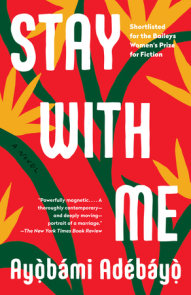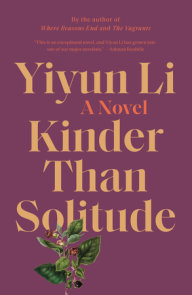READERS GUIDE
The questions, discussion topics, and reading list that follow are intended to enhance your reading group’s discussion of A Bad Character, the electrifying debut novel from Deepti Kapoor about a young woman’s dark, obsessive love affair in contemporary New Delhi, India.Questions and Topics for Discussion
1. It’s clear from page 1 that the narrator is telling her story retrospectively. In what ways does the novel maintain the immediacy and urgency of its opening lines throughout, even when the narrator’s voice slips into hindsight?
2. What is the significance of the narrator giving herself the name Idha, which she describes as “lunar, serpentine, desirous. A charm that protects me” (p. 5)? What does it say about her relationship to her identity that no one in the book calls her by that name and that we never learn her “real” name?
3. Discuss the narrator’s relationship with her mother, and how time and memory have influenced her understanding of it since her mother’s death.
4. How do the differences between the generations of women (the narrator vs. Aunty and her mother) reflect changes taking place in Indian society and culture during the time period of the book (c. 2000)?
5. What are the narrator’s relationships with other girls her age? How do her isolation and loneliness echo throughout the book, perhaps causing her to act as she does?
6. Does the narrator ever express any interest in complying with the traditional gender expectations that Aunty and others have of her? How does her attitude toward the “non-resident Indians” (NRIs) and Aunty’s marriage meetings on her behalf change once she meets her lover?
7. Name some of the reasons that the narrator’s lover attracts her when they first meet at the café. What does he offer her—intellectually, financially, physically—that her current life with Aunty and her education at college can’t?
8. The narrator says that “Delhi is no place for a woman in the dark unless she has a man and a car or a car and a gun” (p. 15). Do the events of the novel bear this out? What does having a car, or even simply being in a car, mean for the narrator’s independence and her sense of identity?
9. How does the Delhi that the narrator’s lover shows her at night, as they drive around in his car, differ from the Delhi she knew before they met? Consider the specific language she uses to describe the city at different times in the novel (including day vs. night) as well as the contrast between interior and outdoor spaces.
10. Is the way that Delhi itself is portrayed different from your preconceived notions of the city? Consider especially recent news about the situation of women in India and their safety, especially in large cities like Delhi. Did the novel change any of your notions about what it means to be a young woman in a fast-changing society in the developing world?
11. The narrator names many other places besides Delhi where she’s lived in India—Varanasi, Agra, Bombay—and her lover describes a different kind of city experience in New York. Could the events of this novel have taken place in a different city, even outside of India?
12. Although the narrator is hurt by her lover’s elaborate lies, do you think his dishonesty influenced her own truth-telling, or not, during their relationship? Or was she prone to lying already, or even required to lie in order to feel more free as she became an adult?
13. Were you surprised to learn of the existence of the lover’s fiancée, and also of his parents? Why do you think he hid these crucial parts of his past? Might it have had something to do with the fact that he himself left India and forged a new identity abroad? Or might it have had to do with the high expectations set by his parents—and by himself—for his future? How, without being explicit, does the novel itself ask these questions?
14. What are some of the similarities among the men in the narrator’s life: her lover, her father, and Uncle among others?
15. Why is the narrator compelled by the girl who lives in the building across from her, whom she sees from her bedroom window? Why does this girl’s death unhinge the narrator so profoundly?
16. Why do you think Deepti Kapoor alternates telling this story in first and third person, and in past and present tense? What do these shifts in time and point of view say about the nature of memory and of love?
17. Why is the experience at the dargah so powerful for the narrator? What role does religion and/or spirituality play in this novel, and did it subvert any notions you had about India?
18. Do the narrator and her lover have different reasons for taking drugs? How do the ways they seek and react to drugs suggest this?
19. The novel has numerous sexually explicit scenes. How did you feel about them? Does the narrator embody a certain image of sexuality specific to her time and place? Or are these feelings universal?
20. Do you believe that the narrator’s lover becomes truly insane? Does she believe that? Discuss the nuance and ambiguities in his portrayal that make this difficult to determine. Discuss, too, how this might also be shaped by culture, but also by the nature of love itself.
21. At what point does the narrator’s endurance for her lover’s abuse reach its limit? Why would a young woman choose to continue a relationship like this?
22. On the first page of the text, the narrator tells us that her lover is the “bad character” of the title. Over the course of the novel, does anyone else—or even the city—emerge as a “bad character” as well?
23. On what note does the novel end, particularly regarding the narrator’s future? How do you imagine she would fare after the events she described? What does the fact of the book’s existence tell you about what happened to her, even without stating what she’s done in the years since her lover died?
About this Author
Deepti Kapoor grew up in Northern India and attended college in New Delhi, where she worked for several years as a journalist. A Bad Character is her first novel.Suggested Reading
Aravind Adiga, White TigerMarguerite Duras, The Lover
Gustave Flaubert, Sentimental Education, Madame Bovary
Gillian Flynn, Gone Girl
Mary Gaitskill, Bad Behavior
Mohsin Hamid, How to Get Filthy Rich in Rising Asia
Josephine Hart, Damage
Jay McInerney, Bright Lights, Big City
Katherine Faw Morris, Young God
James Salter, A Sport and a Pastime
Donna Tartt, The Secret History
Kate Zambreno, Green Girl




















